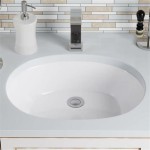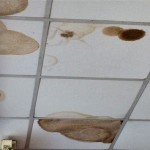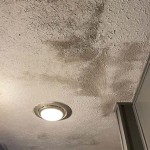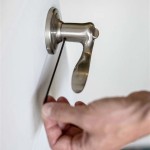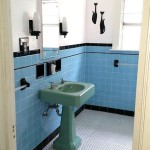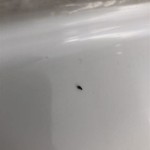Why Does the Bathroom Smell When It Rains?
The sudden, unpleasant odor that can permeate your bathroom during and after a rainstorm is a common phenomenon. This seemingly perplexing occurrence can be attributed to a combination of factors, most of which stem from the unique relationship between rainwater, plumbing systems, and the environment within a bathroom. While the exact cause can vary depending on the specifics of your plumbing and local conditions, understanding the underlying mechanisms can help pinpoint the source and explore solutions to minimize or eliminate the issue.
The Role of Atmospheric Pressure
One key factor contributing to bathroom odors during rainy weather is the change in atmospheric pressure. As the rain falls, the atmospheric pressure outside decreases. This creates a pressure difference between the outside air and the air inside your home, including your bathroom. To equalize this pressure difference, air from the outside is drawn into your home through any available openings, such as vents, windows, or even gaps in doors. This influx of air can carry with it various odors from the surrounding environment, which may then become trapped in the bathroom due to its typically enclosed nature.
This phenomenon is particularly noticeable in bathrooms because they often have poor ventilation. The combination of a lack of air circulation and the introduction of outside air can create a stagnant atmosphere, allowing the outside odors to linger and become more pronounced. Moreover, bathrooms are often equipped with drains and plumbing fixtures that can act as potential entry points for these outside odors.
Plumbing Systems & Moisture
Rainwater itself can also play a role in the unpleasant smells emanating from your bathroom. The moisture created by the rain can significantly influence the behavior of your plumbing system. For example, rainwater infiltrating the soil surrounding your house can lead to increased humidity levels in your basement or crawl space. This humidity can create a favorable environment for mold and mildew growth, which can release pungent odors that travel through the plumbing system and into your bathroom.
Furthermore, rainstorms can also cause fluctuations in water pressure within your plumbing system. This fluctuation can lead to the release of volatile organic compounds (VOCs) from the water itself or from the materials used in your plumbing system. These VOCs can be responsible for the musty, earthy, or sewage-like smells that become noticeable during and after a rainstorm.
Ventilation & Airflow
The effectiveness of your bathroom's ventilation system can significantly impact the severity of the odor issue. Proper ventilation is crucial for removing moisture, odors, and pollutants from the bathroom. If your bathroom has poor ventilation, the odors that are introduced from the rain or through the plumbing system can accumulate and linger, creating an unpleasant atmosphere. This situation can be exacerbated if your bathroom lacks an exhaust fan or if the existing fan is malfunctioning.
In addition to ventilation, the airflow within your home can also play a role. If your house is tightly sealed, the influx of outside air during rain can become trapped, making the odors more concentrated. Conversely, a well-ventilated home with good airflow can help dissipate these odors more effectively.

The Reason Your House Smells Like Sewer When It Rains

The Reason Your House Smells Like Sewer When It Rains

The Reason Your House Smells Like Sewer When It Rains
Why Does My House Smell Like Sewer At Night Quora

Why Does My Bathroom Smell Like Sewage Gallagher S

Smells Like Sewage Here S Why Simpson Plumbing Llc
My Bathroom Smells Bad But Only When Its Hot Outside It Also Will Slightly Go Away I Run The Sink And Toilet Bathtub Any Thoughts On What Is

Why Does My House Smell Damp When It Rains

Bathroom Smells Like Sewage Causes Fixes Inside Out

Sewer Smell In Bathroom Identify And Eliminate The Odor
Related Posts
